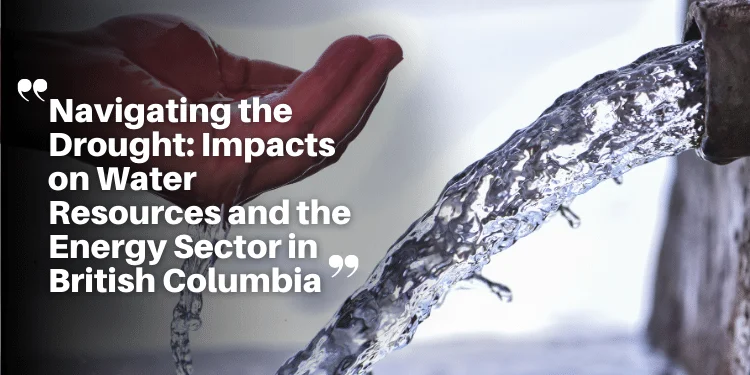Navigating the Drought: Impacts on Water Resources and the Energy Sector in British Columbia

Understanding the Drought Crisis in Northeast B.C.
Northeast British Columbia (B.C.) faces an enduring drought crisis, reshaping its landscape and challenging its socio-economic fabric. The region, once characterized by robust river flows, now grapples with dwindling water sources, affecting ecosystems and human activities alike. Groundwater depletion and reduced streamflows disrupt agriculture, wildlife, and community livelihoods, particularly in regions like Fort Nelson and the Peace River areas.
Impact of Drought on Streamflows and Groundwater
The drought-induced decline in streamflows and groundwater levels poses significant challenges for ecosystems and human activities dependent on water. Agricultural irrigation, wildlife habitats, and community well-being are all at risk as water scarcity deepens. Areas like Fort Nelson, East Peace, North Peace, and South Peace are experiencing severe drought conditions, exacerbating the strain on water resources.
Areas at the Highest Drought Level
Fort Nelson, East Peace, North Peace, and South Peace regions in British Columbia face the highest drought levels, with implications for both economy and ecology. For instance, Fort Nelson serves as a vital hub for energy extraction from the Horn River Basin, where water scarcity threatens operations and economic stability. The severity of the drought underscores the urgent need for sustainable water management strategies.
Challenges for Hydraulic Fracturing
The water-intensive process of hydraulic fracturing faces unprecedented challenges amidst the drought. This technique, vital for oil and gas extraction in northeast B.C., relies heavily on water availability. Balancing operational needs with environmental sustainability and community welfare is a complex ethical dilemma for the industry.
Implications for Oil and Gas Production
The drought’s impact extends beyond environmental concerns to the economic pillar of natural gas production in northeast British Columbia. Reduced water availability jeopardizes hydraulic fracturing operations, disrupting the supply chain, job market, and regional economy. Diminished production also affects revenue streams vital for public services and infrastructure development.
Consequences of Water Shortages on Natural Gas Production
Water shortages threaten to curtail natural gas production, a cornerstone of British Columbia’s economy. Hydraulic fracturing, reliant on substantial water volumes, faces operational constraints amidst dwindling water supplies. The ripple effects extend to employment, revenue generation, and governmental finances, highlighting the urgent need for sustainable water management practices.
Impact of Persistent Drought on Oil and Gas Activities
Persistent drought conditions necessitate a fundamental reevaluation of water usage in oil and gas operations. Adaptation strategies, including technology innovation and conservation measures, are imperative to mitigate short-term impacts and ensure long-term sustainability.
Canadian Association of Petroleum Producers’ Role
The Canadian Association of Petroleum Producers (CAPP) plays a pivotal role in promoting sustainable water management practices within the oil and gas industry. Collaborative efforts and advocacy for water recycling and conservation initiatives are essential for mitigating the adverse effects of drought on energy operations.
Response from the B.C. Energy Regulator and Industry
The British Columbia Energy Regulator (BCER) responds to the impending water crisis by implementing preventive measures and urging industry stakeholders to adopt enhanced water management strategies. The industry, in turn, explores alternative technologies and storage solutions to minimize freshwater usage and ensure operational continuity.
Future Strategies and Mitigation Efforts
Proactive strategies, such as wastewater recycling, dry fracking technologies, and utilization of non-potable water sources, are essential for mitigating water scarcity in the oil and gas sector. Collaborative partnerships and investment in research and development foster innovation and resilience in the face of drought challenges.
Conclusion and Call-to-Action
The convergence of drought and water scarcity with oil and gas operations in British Columbia necessitates immediate action and collaborative solutions. Stakeholders must prioritize sustainable water management practices, embrace technological innovations, and engage in dialogue to safeguard the region’s water resources and economic vitality.







